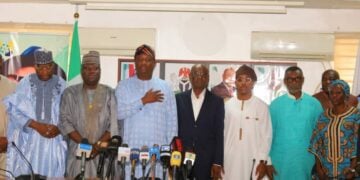In the face of Nigeria’s economic challenges, the Nigerian Institute of Quantity Surveyors (NIQS) has called for innovation and sustainable growth within the construction industry as it prepares for its 2024 Annual General Meeting (AGM) in Port Harcourt, scheduled for November 26–29.
At a pre-event press conference, NIQS President QS Kene Nzekwe, FNIQS, highlighted the institute’s efforts to strengthen quantity surveying practices and processes to address economic turbulence.
This year’s AGM, with the theme “Strengthening Quantity Surveying Practices and Processes for Growth and Sustainability in a Turbulent Economy,” aims to tackle pressing industry issues.
Nzekwe stressed the critical role of quantity surveyors in resource allocation, cost management, and efficient project execution amid economic volatility.
“In these turbulent times, quantity surveyors must adapt and innovate to remain indispensable. Our role in ensuring value-for-money solutions is pivotal as the nation grapples with inflation and scarce resources,” he said.
Nzekwe outlined several initiatives by the NIQS to enhance construction outcomes, including Cost Databank Development: A comprehensive resource to provide reliable benchmarks for project cost estimation and planning, the Building and Engineering Standard Method of Measurement, designed to standardise cost estimation and improve transparency, resource Scheduling for Small Projects: Tailored guidelines to assist small-scale builders in resource allocation and scheduling, promoting inclusivity and sustainability.
The president urged stakeholders to adopt these frameworks to enhance accountability, improve project quality, and foster industry-wide best practices.
Nzekwe also addressed challenges such as hyperinflation and unqualified personnel and the risks they pose to project success and public safety. He criticised the engagement of unqualified personnel in cost management, citing their contribution to abandoned projects, cost overruns, and structural failures.
“Quantity surveyors are uniquely qualified to provide accurate cost assessments from project conception to completion. Engaging unqualified personnel jeopardises not only project outcomes but also public safety,” Nzekwe warned.
The NIQS called on the government to prioritise qualified quantity surveyors in construction projects and urged the separation of design and cost management responsibilities to enhance transparency and accountability.
As the AGM approaches, Nzekwe reaffirmed the institute’s commitment to collaborating with stakeholders to optimise project delivery and achieve sustainable growth.
“Our expertise can help navigate challenges, manage construction costs, and maximise scarce resources,” he said, emphasising that solutions from the AGM will shape the industry’s future.
“The AGM will also provide an opportunity for the NIQS leadership to present achievements and gather feedback to strengthen the institute further.
“By fostering innovation, collaboration, and adherence to global best practices, we can create a resilient and efficient construction industry,” Nzekwe concluded.





